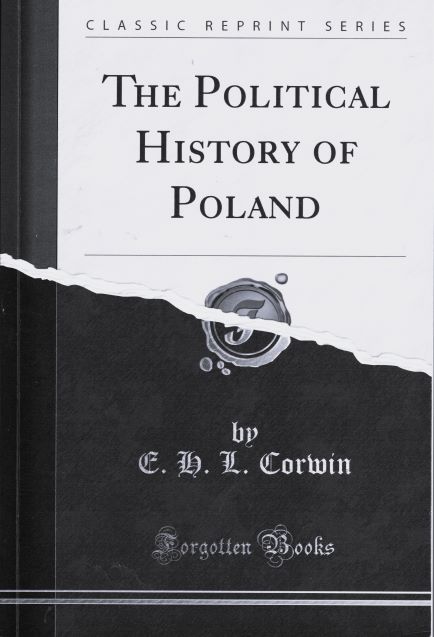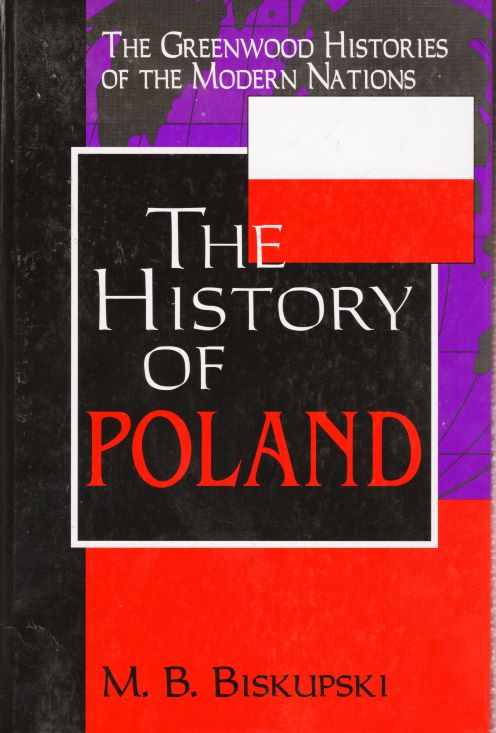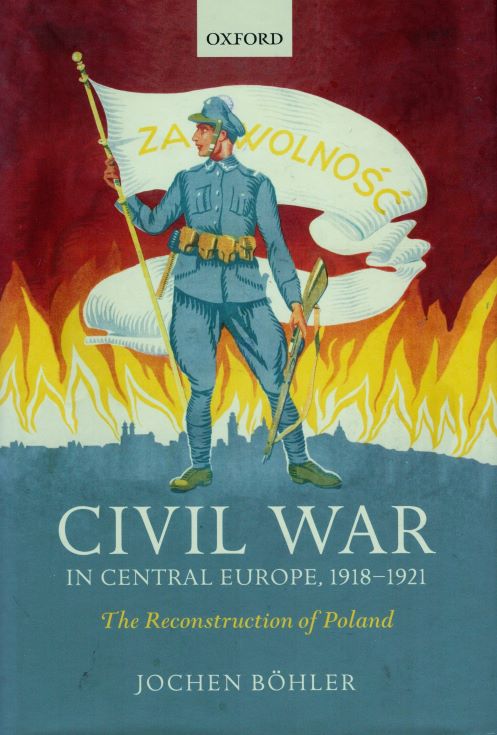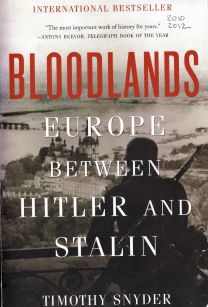marion kanawha 3 | 126
20 Aug 2024 #181
In my effort to learn Polish history I've read a number of comprehensive histories of Poland. I've read the more famous ones that have been written in English. These would include:
·Adam Zamoyski
POLAND, A HISTORY, 2009
THE POLISH WAY, 1994
·Daniel Stone
THE POLISH-LITHUANIAN STATE, 1386-1795, 2001
·Norman Davies
GOD'S PLAYGROUND, Vols ! & 2, 1984 edition and 2005 revised edition.
·Jerzy Lukowski & Hubert Zawadzki
A CONCISE HISTORY OF POLAND, 2nd edition, 2006
·Patrice M. Dabrowski
POLAND, THE FIRST THOUSAND YEARS, 2016
I just finished a one hundred seven year old book (published in 1917 and described in the thread above). Surprisingly I found this book, THE POLITICAL HISTORY OF POLAND, to be one of the best. The narrative flowed easily thanks to Lewinski-Corwin's style of writing. The author wrote this book in 1917 while WW I was going on and a new Poland was attempting to be born. When he finished the book the Russian czar was already overthrown and the USA entered WW I.
The author mentions that few references have been given throughout the book. The reason ha says this was because his publisher advised against listing sources that a reader could not consult. Most of the references used were in Polish. His footnotes were printed though and I researched some of them.
August Sokolowski (1846-1924) and Wladyslaw Smolenski (1851-1926) where two of the historians used. Has anyone heard of them? Also Josef Grabiec, HISTORY OF THE POLISH NATION, 1909 was used as was ZARYS HISTORYI POLSKIEJ, 1913 (OUTLINE OF POLISH HISTORY).has any of the forum members used them or read them? It's too bad the references weren't published. They'd be helpful today.
One thing I will say is that the book was beautifully illustrated. I read a reprint version, pictured here, so I could write notes in it. The illustrations and some of the printing were poor and faded. I obtained an original copy through the library loan system from the library of Sarah Lawrence College in New York. The pictures were beautiful enough to be framed!
Even though I thoroughly enjoyed the book it has its pluses and minuses. Another interesting part is when the author talks about what the future holds from the perspective of 1917!
·Adam Zamoyski
POLAND, A HISTORY, 2009
THE POLISH WAY, 1994
·Daniel Stone
THE POLISH-LITHUANIAN STATE, 1386-1795, 2001
·Norman Davies
GOD'S PLAYGROUND, Vols ! & 2, 1984 edition and 2005 revised edition.
·Jerzy Lukowski & Hubert Zawadzki
A CONCISE HISTORY OF POLAND, 2nd edition, 2006
·Patrice M. Dabrowski
POLAND, THE FIRST THOUSAND YEARS, 2016
I just finished a one hundred seven year old book (published in 1917 and described in the thread above). Surprisingly I found this book, THE POLITICAL HISTORY OF POLAND, to be one of the best. The narrative flowed easily thanks to Lewinski-Corwin's style of writing. The author wrote this book in 1917 while WW I was going on and a new Poland was attempting to be born. When he finished the book the Russian czar was already overthrown and the USA entered WW I.
The author mentions that few references have been given throughout the book. The reason ha says this was because his publisher advised against listing sources that a reader could not consult. Most of the references used were in Polish. His footnotes were printed though and I researched some of them.
August Sokolowski (1846-1924) and Wladyslaw Smolenski (1851-1926) where two of the historians used. Has anyone heard of them? Also Josef Grabiec, HISTORY OF THE POLISH NATION, 1909 was used as was ZARYS HISTORYI POLSKIEJ, 1913 (OUTLINE OF POLISH HISTORY).has any of the forum members used them or read them? It's too bad the references weren't published. They'd be helpful today.
One thing I will say is that the book was beautifully illustrated. I read a reprint version, pictured here, so I could write notes in it. The illustrations and some of the printing were poor and faded. I obtained an original copy through the library loan system from the library of Sarah Lawrence College in New York. The pictures were beautiful enough to be framed!
Even though I thoroughly enjoyed the book it has its pluses and minuses. Another interesting part is when the author talks about what the future holds from the perspective of 1917!

img20240820_12233152.jpg



